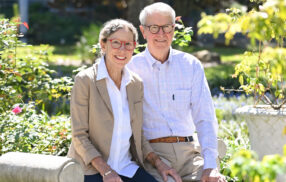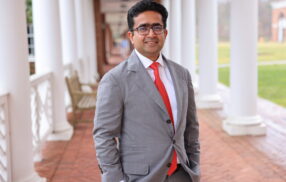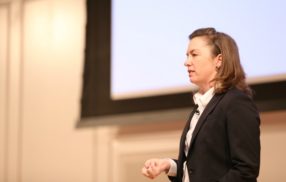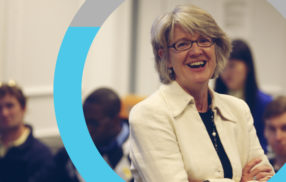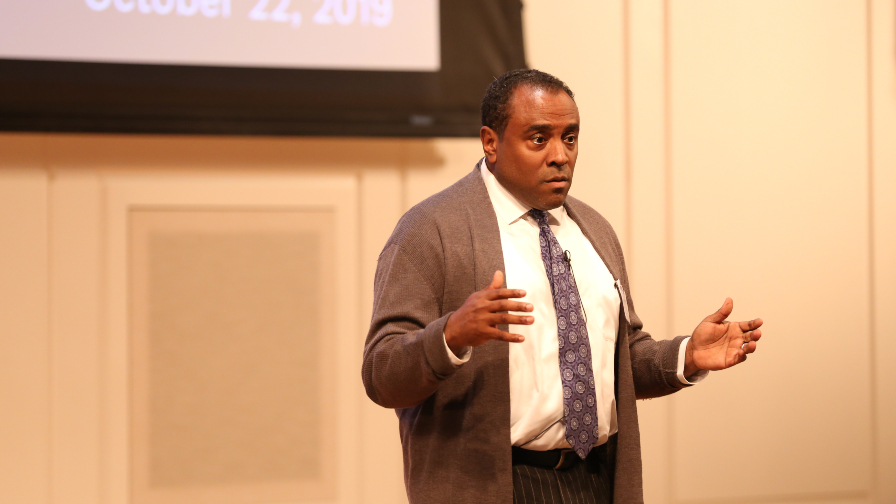
Opportunity Zones Aim for Social Impact, Investor Returns
By Dave Hendrick
A bevy of Virginia state officials, including economic developers, entrepreneurs and investors, came to the University of Virginia Darden School of Business on 22 October for the launch of Opportunity Virginia, a state initiative intended to coordinate efforts to tap into the federal “opportunity zones” program.
Opportunity zones, a designation created by the 2017 Tax Cuts and Jobs Act passed by the U.S. Congress and signed into law, offers tax-advantaged investment opportunities in designated census tracts with elevated poverty rates and below average median income. Virginia has 212 opportunity zones.
Learn 5 Things You Need to Know About Opportunity Zones on Darden Ideas to Action
Speaking at Darden, Virginia Governor Ralph Northam noted Virginia’s recent accolade as the No. 1 state for business, and said he intended to do everything possible to ensure the state maintained the top spot.
Northam said the Opportunity Virginia program aimed to burnish the state’s reputation for business while creating more economic opportunity for distressed areas of the state, pairing communities in need with investors.
Noting that there was no one model for how to administer the opportunity zones, which have already come under fire in some states, Northam said Opportunity Virginia intended to offer a transparent marketplace for connecting investors and communities, and said the state was “making it a priority to pursue economic growth that is inclusive and equitable, not just market-driven.”
Opportunity Virginia Executive Director Adam Northup (MBA ’04) also stressed the importance of driving socially impactful investments.
“The mission is to encourage and enable positive community investments of all kinds and facilitate productive connections between investors, project sponsors and the communities themselves — while maintaining a pulse on socio-economic outcomes in opportunity zones throughout the Commonwealth,” said Northup.
Throughout the course of the daylong launch event, attendees heard from representatives from a variety of interested parties, including multiple entrepreneurs seeking investment within opportunity zones. Investment pitches included a multipurpose pickleball facility — a venture backed by Darden alumna Barrett Worthington (MBA ’17), a hotel and event space, a community of tiny homes, and an environmentally friendly carbon substance billed as “the strongest material known to man.”
Darden Professor and UVA Associate Dean for Washington, D.C, Area Initiatives Greg Fairchild, whose research, along with that of Darden Professors Mary Margaret Frank and Elena Loutksina, often focuses on issues at the nexus of business, public policy and social impact, encouraged would-be investors to learn about and consider the underlying social problems endemic to many opportunity zone areas when considering the deployment of capital.
Fairchild noted that the opportunity zone legislation was not the first attempt to develop a novel financial mechanism to help communities that have not grown and prospered apace with the overall economy, citing the mixed legacy of initiatives such as “empowerment zones,” new markets tax credits and social impact bonds, for instance.
“We keep coming up with new solutions for fundamental problems we continue to face,” Fairchild said. “I’m super excited about opportunity zones, and I’m super excited about the wonderful elements of the tax code that link so many people together. I’m curious, though, whether those fundamental problems that we faced when we created empowerment zones will be the same problems we’ll have in just a little while.”
If the opportunity zones aim to ultimately represent more than the proverbial “old wine in new bottles,” investors and organizers should pay close attention to the impact they hope to achieve, and be prepared to measure that impact, Fairchild said.
Fairchild encouraged attendees hoping to work or invest in opportunity zones to “embed” with the community, meet the organizations already working in the space and take seriously existing local efforts.
The opportunity to effect change with the aid of opportunity zones is immense, Fairchild said, but an expectation that poverty and social challenges will be solved through a financial instrument alone likely places an undue amount of faith in the tool.
The University of Virginia Darden School of Business prepares responsible global leaders through unparalleled transformational learning experiences. Darden’s graduate degree programs (MBA, MSBA and Ph.D.) and Executive Education & Lifelong Learning programs offered by the Darden School Foundation set the stage for a lifetime of career advancement and impact. Darden’s top-ranked faculty, renowned for teaching excellence, inspires and shapes modern business leadership worldwide through research, thought leadership and business publishing. Darden has Grounds in Charlottesville, Virginia, and the Washington, D.C., area and a global community that includes 18,000 alumni in 90 countries. Darden was established in 1955 at the University of Virginia, a top public university founded by Thomas Jefferson in 1819 in Charlottesville, Virginia.
Press Contact
Molly Mitchell
Associate Director of Content Marketing and Social Media
Darden School of Business
University of Virginia
MitchellM@darden.virginia.edu




